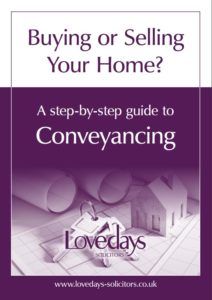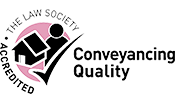- Home
- Personal Services
- Advice for Employees
- Conveyancing
- Dispute Resolution
- Boundary Disputes
- Dealing with Rent Arrears
- Japanese Knotweed Claims
- Landlord and Tenant Disputes
- Landlord Harassment & Illegal Eviction
- Negligence Claims Against Builders & Developers
- New Build Property Disputes
- Noisy Neighbour Disputes
- Personal Debt Collection
- Property Misrepresentations Claims
- Rights of Way Disputes
- Section 21 No Fault Evictions
- TOLOTA Claims
- Tree & Hedge Neighbour Disputes
- Divorce and Separation
- Family Law
- Lasting Power of Attorney
- Licensing
- Probate Law
- Trusts
- Wills
- Business Services
- Reviews
- Make An Enquiry
- Cost and Service Information
- About Us
- Contact Us
Noisy Neighbour Disputes: Public and Private Nuisance
Noise disturbances are among the most common types of anti-social behaviour offences reported to police, local authorities, and housing associations. Noise disturbances encompass a wide variety of events such as loud music and parties, loud banging, or construction or DIY late at night. If your neighbours are making noise that is affecting your life and you consider it to be unreasonable, this could be a cause for a complaint.
If you’re having issues with a noisy neighbour, contact us and our team will be happy to guide you through the process and help you resolve your dispute in a timely and amicable manner.
{quote}
Understanding Nuisance
In the UK there are two categories of nuisance that are recognised; public nuisances and private nuisances.
Public Nuisances
Public nuisances are defined as acts that affect the public at large or a portion of the public. Public nuisances could be things such as blocking public roads and other activities that disturb public peace. Public nuisances are criminal offences and in some cases can become a civil claim.
Private Nuisances
Private nuisances are acts that interfere with an individual’s peace and use of their land or property. Some examples of private nuisances include things such as loud music or parties, late night construction or DIY work, light obstruction and more. If the nuisance cannot be remedied privately then they can be escalated to civil cases against the person causing the nuisance.
Legal Aspects of Noise Nuisance
Noise nuisance is a common issue and can be either a public or private nuisance depending on the circumstances.
Claims & Cases
Claims and cases against people creating noise nuisances depend on whether they are a public or private nuisance. If the noise is a public nuisance then legal action is typically initiated by the police or local authorities but individuals may also raise a case if they can prove “special damage”.
If the noise nuisance is considered private then it is the responsibility of the affected individual to raise a dispute. This could come in the form of a civil case or an informal resolution through private discussions or mediation.
Legal Remedies
For public nuisances, the party who caused them may face fines, imprisonment, or both depending on the severity and nature of the nuisance. In cases of private nuisances, the guilty party may have to pay damages for loss or injury and/or an injunction from the local authority to prevent the nuisance from continuing.
{quote}
Action Against Noisy Neighbours
Actions taken against noisy neighbours can be completed either informally or formally in the form of legal action. Informal actions may include private negotiation or in the form of mediation in order to reach an agreement with the help of a neutral third party.
Informal resolutions are often the preferred choice as legal action is costly and with additional court fees it can quickly become unaffordable for many.
Noise Regulations & Laws
In the UK the amount of noise people can make at certain times is regulated by law through the use of a number of acts and legislations. In many cases of noisy neighbour disputes, it is the Noise Act 1996 that is in violation.
Noise at Night
Noise at night is covered by the Noise Act 1996 which outlines the amount of noise that can be made between 11pm and 7am. In the event of this being breached, local authorities and the police have the power to issue fixed penalty fines and in some cases the equipment being used to cause the disturbance can be seized.
Noise & Crime
If the noise disturbance being made is considered a “public nuisance” then it is a criminal offence. If the disturbance is great enough then the offender could face fines and/or imprisonment for the disturbance that they have caused.
How Lovedays Solicitors Can Help
With dispute resolution or court proceedings the longer the issue is left the worse it can get. If you have an issue please do not hesitate to contact us.
{quote}
Get Support Today
If you’re having issues with a noisy neighbour, contact us and our team will be happy to guide you through the process and help you resolve your dispute in a timely and amicable manner.

Free Guide
If you don’t know your leasehold from your freehold, then get our Free Conveyancing Guide. It contains details about the steps you will need to take with any property transactions. The Guide giving you detailed guidance on what your lawyer will be doing for you and what to look out for.


Lovedays Solicitors, Brooke-Taylors Solicitors, Potter and Co Solicitors and Andrew Macbeth Cash and Co Solicitors are the trading names of Derbyshire Legal Services Limited which is a company registered in England and Wales under company number 08838592. Registered office Sherwood House, 1 Snitterton Road, Matlock, Derbyshire, DE4 3LZ.
Authorised and Regulated by the Solicitors Regulation Authority under SRA ID number 637916.
-
01629 56660
-
This email address is being protected from spambots. You need JavaScript enabled to view it. -
Sherwood House
1 Snitterton Road
Matlock
Derbyshire
DE4 3LZ
© Copyright 2019 Derbyshire Legal Services Limited | Website by WebWorks